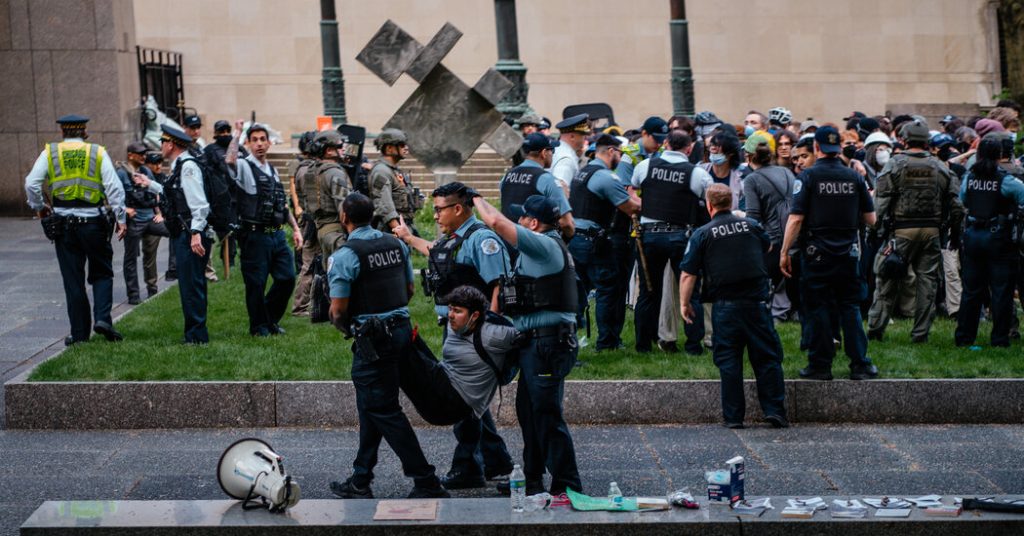On Saturday, police forcibly dismantled a pro-Palestinian encampment at the Art Institute of Chicago and arrested dozens of protesters, including students from the affiliated School of the Art Institute of Chicago. The Chicago Police said they acted at the school’s request, removing the protesters who had set up tents in the North Garden of the museum. The protesters had demanded that the institute formally condemn Israel’s treatment of Palestinians, remove programs that support the occupation of Palestine, and divest from entities that support Israeli occupation of Palestinian territory.
The People’s Art Institute, the organizers of the protest, stated that their demands included justice for a 6-year-old Palestinian girl, Hind Rajab, who was killed in Israel’s war on Hamas in Gaza. The protesters wanted the institute to acknowledge and address the ongoing violence and occupation in Palestine. The school offered protesters an alternate venue and promised students that they would not face academic sanctions or charges if they relocated there. However, the situation escalated as some protesters surrounded and shoved a security officer, stole their keys, blocked emergency exits, and barricaded gates.
Two hours of negotiations between the protesters and the museum resulted in the police being called in to remove and arrest the demonstrators. Videos posted by the organizers showed police forcibly removing protesters from the human chain they had formed, while chants of “Who do you protect? Who do you serve?” were heard. The police arrested 68 people and charged them with trespassing. While some other U.S. schools had allowed pro-Palestinian encampments to stand for days or weeks before taking action, in this case, the police said they responded immediately to maintain the safety of protesters and the public.
The incident at the Art Institute of Chicago was part of a wave of pro-Palestinian protests in the U.S., with demonstrators calling for solidarity with Palestinians and an end to violence and occupation in Palestine. The protesters at the institute sought to raise awareness about the situation in Palestine and pressure the institution to take a stand against Israel’s treatment of Palestinians. The clash between the protesters and police highlighted the deep divisions and tensions surrounding the Israeli-Palestinian conflict, both internationally and within the U.S.
The use of force by the police to dismantle the encampment at the Art Institute of Chicago sparked debate and criticism, with some expressing support for the protesters’ demands and others condemning the actions of the protesters. The incident also raised questions about freedom of speech and the right to protest, as well as the role of institutions in addressing controversial and politically-charged issues. The aftermath of the protest prompted discussions about the need for dialogue, understanding, and empathy in addressing conflicts and injustices, both locally and globally.
Overall, the clash at the Art Institute of Chicago underscored the deep-rooted issues and tensions surrounding the Israeli-Palestinian conflict, as well as the complexities of addressing such contentious and sensitive topics. The incident brought national attention to the ongoing violence and occupation in Palestine and highlighted the importance of advocacy, activism, and dialogue in promoting justice and human rights. The aftermath of the clash prompted reflection on the role of institutions, individuals, and communities in addressing and responding to conflicts and injustices, both within the U.S. and internationally.


